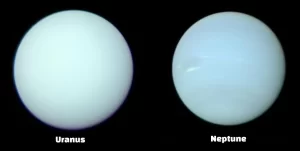Astronomers discover first new moon of Uranus in over two decades and two new moons of Neptune
The International Astronomical Union’s Minor Planet Center announced the discovery of three new moons, marking the first Uranian moon found in over 20 years and two additional satellites orbiting Neptune, one being the faintest moon ever detected by ground-based telescopes.



